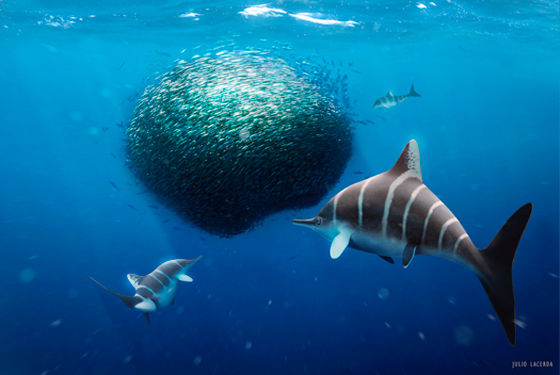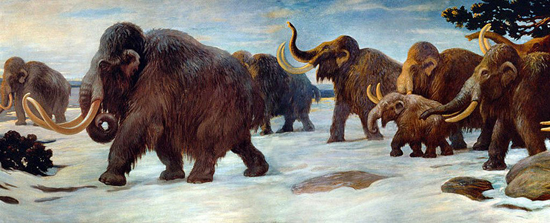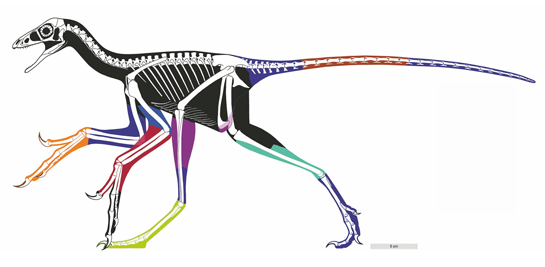Did Tyrannosaurus rex use a Tooth brush?
Developing the line of thought regarding the possibility of large Theropod dinosaurs having bacterial bites (see previous posting – Tyrannosaurus rex causes Chinese Takeaway), the question of how did the big meat-eaters like T. rex clean their teeth.
Information on tyrannosaur bacterial bite here.
In the case of most tyrannosaurs, their forelimbs were too small to reach their mouths so the could not have used their claws as tooth picks. The truth is that T. rex probably did not have to clean its teeth, like most reptiles they have a considerable advantage over the mammals when it comes to dentition. Dinosaurs constantly shed their teeth, with new ones growing up from the jawbone to replace old, damaged or wore teeth. This is why when you look at a skull of a T. rex in a museum all the teeth in the jaw are different sizes. The teeth of a T. rex were shaped slightly differently depending on which part of the mouth they come from but the different sizes are due to some teeth being older than others, smaller younger teeth erupting through the jaw.
Larger crocodile species such as the Nile crocodile (Crocodylus niloticus) can have up to 40 sets of teeth in a lifetime. There teeth are conical and not serrated like tyrannosaurs teeth, the lack of serrations (palaeontologists call these serrations denticles) would make them slightly less likely to have pieces of their last meal stuck to them and therefore less likely to harbour bacteria. As crocodiles gape their teeth are exposed to sunlight and this helps to bleach the teeth and clean them. It is also believed that small birds such as the Nile Plover (Pluvianus aegyptius) may have a symbiotic relationship with the crocodiles. These small birds may give crocs a grooming service – picking off skin parasites and removing pieces of food stuck in the crocodiles jaws.
T. rex lived at a time when the birds had become very well established. There were lots of species of birds around at the end of Cretaceous that are familiar today. Perhaps tyrannosaurs actively sought out colonies of small birds and gaped with their jaws wide open attracting birds to come over and give them a grooming. Maybe these birds (the brave ones at least), would enter the beast’s huge mouth and remove the shreds of meat left behind from animal’s last meal. This is pure speculation of course, behaviour like this is unlikely to be recorded in the fossil record, but if other animals can develop mutually beneficial relationships – why not dinosaurs as well?
As Everything Dinosaur has links with a number of Natural History museums we are able to get access to real T. rex teeth to study them and make casts.
Genuine museum quality replica T. rex tooth and other fossil casts and models are available from our website.
Dinosaur Crafts for Kids: Visit Everything Dinosaur.
We can even sell casts of real fossils (resin replicas) so you too can get hold of things like a Velociraptor killing claw and your very own T. rex tooth. The tooth we sell is a resin replica of a tooth from the right lower jaw of a T. rex specimen discovered by the American palaeontologist Barnum Brown in 1900. It was from these remains that T. rex was named and described. The specimen code for this discovery is BM-R7995 and it is stored at the Natural History museum in London. As only about 13% of the skeleton was recovered at the time, this T. rex has been removed from display. The lack of bones meant that there were few options open to the curators as to how they could exhibit this specimen. It was secured to a huge board representing a backdrop diorama of the Cretaceous and the missing elements were filled in with casts and copies. Unfortunately, this specimen was mounted in the “kangaroo style” with the tail resting on the ground, so it was not anatomically correct. The remains of the first proper T. rex skeleton to be discovered are now locked away in the vast vaults of the Natural History museum, however at least you can obtain your own piece of prehistoric history with a replica tooth. You too can own replica Tyrannosaurus rex teeth!






Leave A Comment